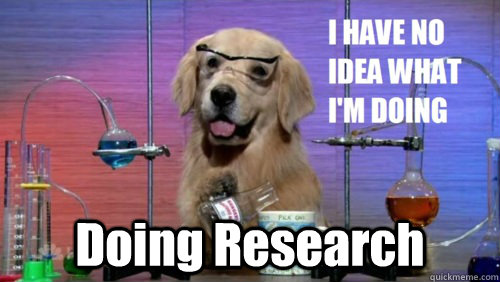As I sit here at 10:30pm on a Sunday night procrastinating from all my work due tomorrow morning, I can’t help but kick myself for putting my work off all weekend. Why is it that we somehow always find a way to procrastinate from everything?

Source: Spongebob Squarepants
In my last blog post, I talked about the article “What Is It We Do When We Write Articles Like This One- And How Can We Get Students To Join Us?” which was about the idea of “hunting and gathering” in research and writing.
When I learned what “hunting” was it immediately made me think of myself and when I procrastinate my school work. “Hunting” is going into something knowing exactly what you are looking for and targeting that specific thing. When I wait till the last minute to write a paper I often find myself “hunting” for specific sources that will help me to finish the paper as fast as I can.
In high school, I found myself “hunting” the night before my U.S History paper was due. I knew exactly what sources I needed and I hunted them down. But, this is where the “gathering” comes in. In the process of hunting down these specific sources I was looking for, I found different ones that actually worked with what I needed. I “gathered” the best sources I could find with the short amount of time I had and I made them work.
I do not recommend writing a paper the night before (it is not fun). But, the next time you do find yourself procrastinating or looking for sources, pay attention to which methods you use. Are you a hunter or a gatherer?
I began writing this blog post to try and figure out why we procrastinate, but I realized I don’t even know why I do… Maybe I am just lazy or maybe I secretly like working under pressure, but the moral of the story is: we use “hunting” and “gathering” all the time when writing. It is interesting to see how often we do it especially in bad habits like procrastinating. Think about this the next time you write!







